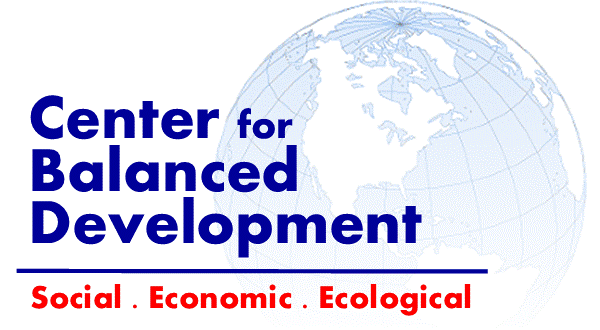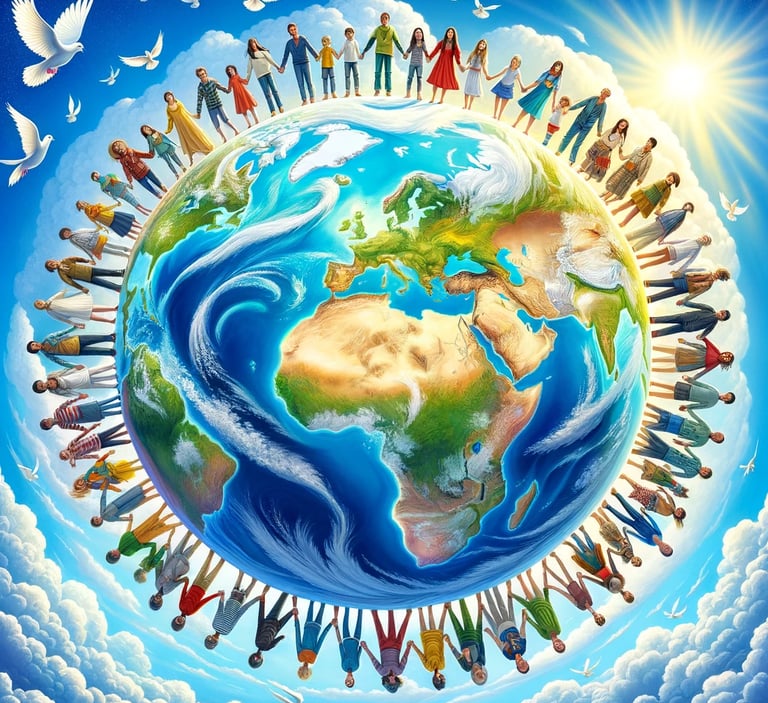Innovation for a more United, Equitable, and Regenerative world..... through
Ongoing Research
on Innovation to Enhance Balance across Social, Economic and Ecological Dimensions of the Development Process
Innovative Programs
for Community Empowerment, Higher Intelligence Integration, Spiritual Enterprise Initiative
Global Network
of Individuals, Communities and Organizations Utilizing our Research and Programs
History & Milestones:
1995: The Center was conceived to pioneer a 21st-century development model that integrates social, economic, and ecological balance through innovation to build a more united, equitable, and regenerative world.
1995-2005: Conducted research on global development trends, challenges, and needs.
2007: Registered as a nonprofit organization in California.
2011: Launched Social Enterprise workshops and accelerators.
2013: Received 501(c)(3) tax-exempt status from the U.S. Internal Revenue Service (IRS).
2015: Created the Innovation Club Program for Youth.
2019: Started the Innovation Club program for children and youth on WhatsApp and WeChat.
2020: Developed the Path of Success School Program.
2022: Initiated AI integration for social enterprise.
2025: Expanded the Innovation Club program on Telegram. Initiated the Specialization Program.
2026: Introduced the concepts of Higher Intelligence and Spiritual Enterprise.



Social Balance
🤝 Social balance is the foundation of civilization, guiding the harmony, peace, and progress of a community. It is cultivated by optimizing human potential through the holistic empowerment of children, youth, and adults—spirit, mind, and body; fostering community harmony and integration through engagement, collaboration, and service; and developing organizational capacity through consultation, action, and reflection. At its core, social balance is the pursuit of higher intelligence, with communities uplifting one another and institutions supporting peace and the common good. When grounded in spiritual awareness and ethical leadership, social balance strengthens unity and ensures lasting progress for all. It becomes the shared framework through which society nurtures compassion, cooperation, and collective well-being.





Economic Balance
🌍 Economic balance is essential for the advancement of civilization, emerging from a global digital economy rooted in human well-being, shared prosperity, and ecological renewal. It grows when development plans draw upon creativity and cultural expression, shaped by the unique character of each community and its conditions, strengthening both community identity and civic engagement. Technology and innovation then become purposeful tools to meet development needs, creating solutions that are inclusive, equitable, and powered by regenerative resources. At the heart of this vision is a service-based economy that works to uplift community, expand opportunity, and ensure progress benefits all—placing people at the center of development. Together, these forces create an economy guided by creativity, innovation, and empathy for the global community.

Ecological Balance
🌿 Ecological balance is essential to the health and longevity of civilization, guiding how individuals and communities live in harmony with nature. It begins with caring for our physical and mental well-being, practicing moderation in consumption, and choosing lifestyles that reduce waste and protect the planet. Communities thrive when habitats are designed to coexist with natural systems—integrating clean energy, green spaces, and regenerative materials. By prioritizing local ecosystems, recycling resources, and restoring what we use, society builds resilience. When guided by mindfulness, responsibility, and respect for the Earth, ecological balance sustains both people and planet. Together, these choices create a regenerative future where progress grows in partnership with nature.



Time and Place
Time and place are essential to creating development models that are both locally grounded and globally connected. Historical insight allows us to learn from the past to guide present decisions and shape sustainable futures. Local-to-global integration ensures that solutions respond to local needs while contributing meaningfully to regional and global systems. Achieving contextual relevance means aligning short-term actions with long-term progress, respecting cultural diversity, geographic realities, and the unique characteristics of each community. By honoring context and embracing interconnection, development becomes more adaptive, inclusive, and impactful across generations.




Multi-Dimensional Balance
A Balanced Development Model requires the harmonious advancement of the social, economic, and ecological dimensions within the context of time and place. On the social level, it promotes inclusivity, equality, and the realization of human potential, while honoring cultural heritage and embracing global diversity. In the economic realm, it fosters sustainable growth, innovation, and equity, adapting to artificial intelligence, the digital economy, and shifting global markets. The ecological dimension focuses on habitat protection, responsible consumption, and the adoption of renewable and regenerative practices to safeguard the planet for future generations. True balance is achieved through integration—aligning all dimensions via global cooperation, cultural exchange, and regional adaptation to ensure long-term sustainability, resilience, and collective progress.
Innovation for a more United, Equitable, and Regenerative world.
© 2026 Center for Balanced Development. All rights reserved.